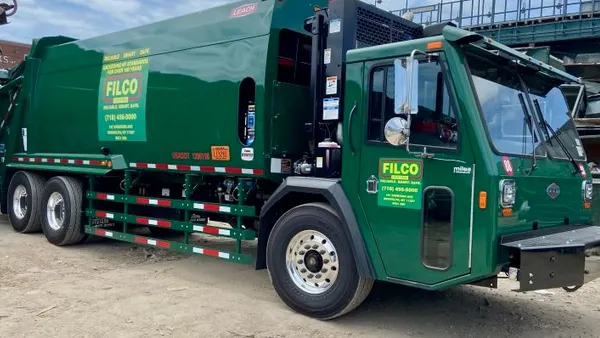Dive Brief:
- A team from the University of Southern Maine found overflowing recycling bins in Portland were responsible for an estimated 3.74 tons of litter annually for every 1,000 households. On average, 15% of bins were overflowing each week and 26% of residents used additional containers for curbside collection.
- According to the study, published in the academic journal Waste Management, the costs of cleaning up this litter could be more than $250,000 per year. This does not include the cost of storm drain clogging or effects on the local marine ecosystem.
- Portland's sustainability coordinator said the city is currently reviewing a number of possible changes to its waste management system and would consider adding new containers to that list.
Dive Insight:
Portland's 18-gallon bins have been available to residents almost since the city's curbside recycling program began in 1999, but updating to newer equipment will be expensive. The current bins cost $10 each, compared to a standard 64-gallon cart that costs approximately $50. Though without lidded containers, material will continue to be displaced by wind and animals.
Since the city instituted a pay-as-you-throw program and switched to single-stream recycling, its diversion rate has reached approximately 36%. This falls below the state's goal of 50%, but shows the popularity of curbside recycling in the city. While the study cites a potential increase in contamination rates in larger containers, its authors still recommend making the switch because it would make recycling easier for residents.
The study indicates that moving from bins to large carts could also benefit workers. It would limit the amount of time at each stop and reduce the risk of injury involved in bending down to pick up the smaller bins. Carts also allow for the possibility of automated collection, which has been found to reduce the number of collection workers required per truck in neighboring municipalities such as South Portland.









